2016 Student Paper Competitions Award Winning Abstracts
Congratulations to the student paper competition winners! The student paper competitions awards are proudly sponsored by the Divisions.
COMMUNITY RESEARCH AND DEVELOPMENT DIVISION
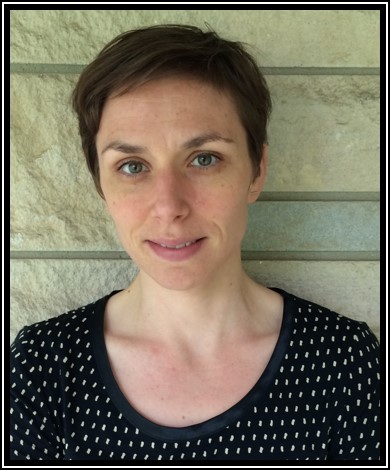 |
Winning Title: “‘From Myths to Means: Place and Organizational Processes in the Gowanus Canal Superfund, New York”
Author: Orla Stapleton
Affiliation: Indiana University
E-mail: opstaple@indiana.edu
Abstract:
This empirical study proposes a novel approach to understanding the relationship between Old and New Institutionalism by considering the effect of place, specifically urban place, on an organization. I examine the process through which an institutional myth was transformed into an operational goal of an organization. I focus on the effect of interaction between organizational actors within the Environmental Protection Agency (EPA) and local community members, on organizational processes at a Superfund site in Brooklyn, New York. Superfund is a federal program to clean environmentally hazardous sites. Designated a Superfund in 2010, the cleanup of the Gowanus Canal (Brooklyn, NY) was ongoing in 2015. Community involvement was an institutional myth within Superfund. Cost-saving was an operational goal. The Superfund Team (EPA organizational actors) aimed to manage community impressions of the cleanup through community involvement, while fulfilling their operational goals. However, a densely populated urban place with a highly active local community was an atypical context for a Superfund site. The Superfund Team deferred to negative reaction to a proposed disposal facility and removed it from the cleanup plan, which increased cost. As such, they transformed the myth of community involvement into an operational goal. Data were collected over three years. They consist of interviews with Superfund Team members and community organizations, Community Advisory Group meeting minutes, EPA documents and EPA public meetings. By highlighting the influence of place and community interaction on organizational processes I bring together literature on urban and organizational sociology, thus increasing knowledge on urban organizations.
CONFLICT, SOCIAL ACTION, AND CHANGE DIVISION
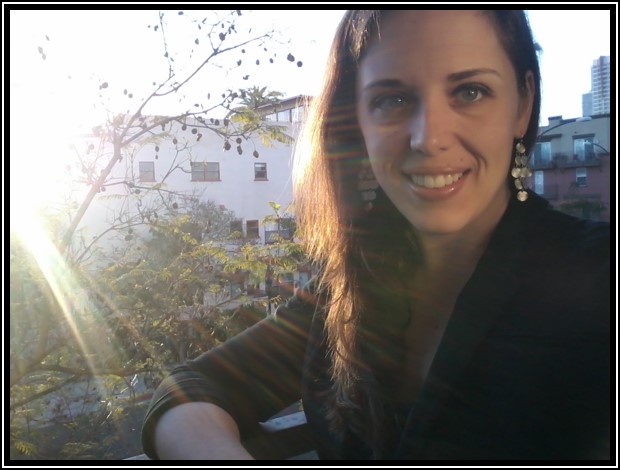 |
Winning Title: “‘Rethinking Urban Militarism: Lessons from Rio de Janeiro’s Favela Pacification Program”
Author: Anjuli Nicole Fahlberg
Affiliation: Northeastern University
E-mail: fahlberg.a@husky.neu.edu
Abstract:
Although much is written about the ways in which military ideologies, discourses, and practices permeate strategies of urban governance, less is known about how targeted communities experience these security interventions. The launch of the Favela Pacification Program in Rio de Janeiro, Brazil in 2008 provides a valuable opportunity to explore favela residents’ attitudes towards militarization. This article draws upon ethnographic fieldwork, including participant-observation in the City of God, a medium-sized favela community occupied by the state’s military police in 2009, as well as interviews with 35 of the City of God’s residents, 12 community leaders and seven outside activists. Although critical urban and criminological scholarships underscore the dangers of militarization in increasing state violence against the urban poor, residents in the City of God reported more mixed impacts, identifying both positive and negative consequences of pacification. These perceptions were primarily informed by the social, economic, and political conditions existing before militarization, including a security landscape dominated by violent drug traffickers and severe limitations on physical mobility and access to needed services and resources. Ultimately, these findings suggest that urban militarism cannot be viewed as inherently harmful, but must be examined within the socio-political contexts in which they are implemented.
CRIME AND JUVENILE DELINQUENCY DIVISION
.png) |
Winning Title: “Post-Incident Interpersonal Difficulty among Adolescent Victims of Intentional Violence”
Author: Jason B. Phillips
Affiliation: Rutgers University
E-mail: jason.phillips@rutgers.edu
Abstract:
Victims of crime and members of their social networks often report some level of post-incident distress. Researchers link higher levels of distress to greater interpersonal difficulties—defined as increased conflict, emotional detachment or reduced trust—between primary victims and their peers, friends and family members. Yet scant empirical work explores how forms of violence and the burden of injury influence post-incident interpersonal problems while considering the experiences of adolescent victims. This gap in extant literature persists even though young people are particularly susceptible to criminal violence, have less experience in reacting to interpersonal violence, and are at a key point in the life course where recovery from violent incidents may have both short- and long-term implications. I pool data from the 2009-2014 waves of the National Crime Victimization Survey and apply logistic regression models to assess whether qualities of violent acts, physical injury and subsequent help-seeking behaviors are predictive of post-incident interpersonal difficulties among younger targets of violent crime and members of their social networks. I find that more severe forms of violence and physical injuries are predictive of subsequent relationship difficulty with peers, friends and family members. Help seeking behaviors—receiving help from a victim assistance
DISABILITY DIVISION
No Award Given
DRINKING AND DRUGS DIVISION
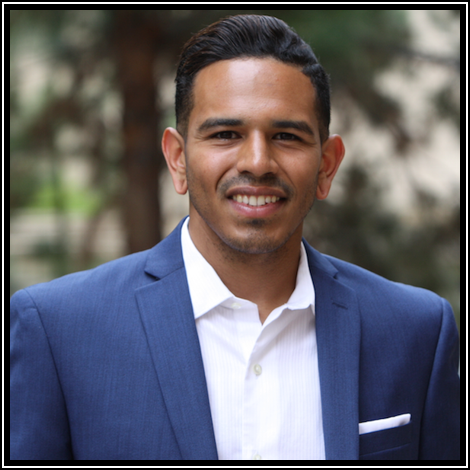 |
Bruce D. Johnson Paper Winning Title: “Structural Segregation and Marijuana Legalization”
Author: Burrel J. Vann Jr.
Affiliation: University of California, Irvine
E-mail: bvann@uci.edu
Abstract:
Segregation can restrict intergroup contact while promoting progressive political action by disadvantaged groups. The influence of segregation on voting outcomes can result when segregation is stable and impervious to change. To demonstrate this dynamic, I consider the role that residential segregation of parents from nonparents plays in shaping perceptions of opportunity, and in turn, providing support for marijuana legalization. I find that while support for legalization is higher in communities where more residents live without children, support is highest in counties in which nonparents are spatially segregated from parents. I argue that limited exposure to children and their families, in nonparent environments, increases the likelihood that community residents perceive legal marijuana as non-threatening to their local community. The analysis also shows that the perception of marijuana as non-threatening is identifiably stronger in stable, unchanging communities.
EDUCATIONAL PROBLEMS DIVISION
 |
Winning Title: “What’s in a Match? Disentangling the Impact of Teacher Race/Ethnicity for Black and Hispanic Students”
Author: Joel Mittleman
Affiliation: Princeton University
E-mail: joeljm@princeton.edu
Abstract:
A growing body of literature documents that black and Hispanic students benefit from teachers who share their racial/ethnic background. Despite this evidence, data limitations have prevented researchers from analyzing how students’ actual experiences in the classroom vary by teacher race/ethnicity. The current study addresses this gap. Using over 56,000 new student surveys, I provide the first large-scale evidence on the specific ways in which matched teachers affect student experience. Comparing students within the same school, I find that matched black and Hispanic students report significantly better experiences than their non-matched peers. This relative advantage does not appear to be driven by difficulties reported with non-matched teachers and emerges primarily in middle school English Language Arts classrooms.
ENVIROMENT AND TECHNOLOGY DIVISION
 |
Brent K. Marshall Paper Winning Title: “Turtles & Teamsters Revival? Analyzing Labor Unions’ Environmental Discourse from the 2014 People’s Climate March”
Author: Lauren Contorno
Affiliation: Northeastern University
E-mail: contorno.l@husky.neu.edu
Abstract:
This paper contributes to the burgeoning discussion on blue-green alliances by elucidating how unions are framing and organizing around the issue of climate justice. On September 21, 2014, 10,000 members from over 70 labor organizations flooded the streets of New York to participate in the People’s Climate March (PCM)—a historic labor turnout for an environmental cause. However, while recent attitudinal research has demonstrated that union members are concerned about environmental degradation, labor’s environmental activism has historically been inconsistent, largely single-issue based, and often curtailed by the real or perceived threat of job loss. Furthermore, existing survey-based literature on this topic provides an insufficient analysis of the negotiated form that workers’ environmental concern takes in union policy, and fails to reveal the multiplicity of values and ideologies that inform and shape environmental activism across organized labor. Utilizing a qualitative mixed-methods approach, including in-depth interviews with labor participants of the PCM, I provide a more nuanced examination of climate politics within the labor movement through an analysis of the collective action frames employed by both union leaders and rank-and-file members. Ultimately, I argue that the predominant climate change discourse amongst interviewees indicates a deployment of an environmental justice “master frame” and is indicative of a social movement unionism mentality. However, ecological modernization discourse was also present as a deradicalizing, countervailing discursive thread. In concluding, I discuss the legacy of the PCM, highlighting blue-green coalition building that has continued since the march, while also noting obstacles that exist to effective climate justice mobilization within the labor movement.
FAMILY DIVISION
No award given
GLOBAL DIVISION/CRITICAL SOCIOLOGY GRADUATE STUDENT PAPER AWARD
 |
Winning Title: “Fencing the Other: Symbolic Constructions of the ‘Immigrant’ Within”
Author: Holly Sevier
Affiliation: University of Hawaii at Mānoa
E-mail: hsevier@hawaii.edu
Abstract:
Symbolic markers of degeneracy have been applied to immigrants in the US since the early 1800s when the practice of alcohol consumption common to newly-arrived German and Irish settlers was purposefully vilified through popular media. The practice of using stigmatizing symbolic markers to construct differential beliefs and treatment of the globally mobile persists today. This paper analyzes historical and contemporary news stories, political speech, campaign adverts, and satirical cartoons containing both visual and textual symbols which helped to produce the hegemony of a discourse that denigrated those cast as immigrants. A number of fear-rousing themes are found in contemporary narratives that mirror historical tropes, such as the use of aquatic metaphors to refer to mass migration. It is theorized that such tropes operate as metonyms which conjure a range of negative associations that have material consequences for those seen as immigrants. Such collective symbolic denigration also serves a number of roles for the status quo. It creates an oppositional status that through a dialectical process helps co-constitute the ‘ideal’ U.S. national subject. It contributes to a collective obliviousness about the violent and colonial origins of the US as a nation-state. And finally, it reifies the nation-state as a ‘natural’ entity rather than as a political and social construct.
HEALTH, HEALTH POLICY, AND HEALTH SERVICES DIVISION
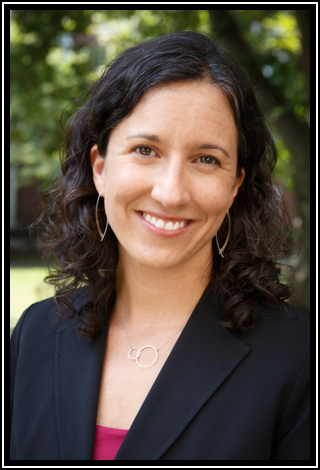 Winning Title: “Emplacing Anger: Emotion Management in West African Pediatric Wards”
Winning Title: “Emplacing Anger: Emotion Management in West African Pediatric Wards”
Author: Ryann Manning
Affiliation: Harvard University
E-mail: rmanning@hbs.edu
Abstract:
A range of workers are regularly tasked with managing negative emotions. Existing literature points to several strategies for doing so, but tends to focus on organizational settings characterized by clear and consistent feeling rules. Using observational and interview data from high-mortality pediatric hospital wards in the West African nation of Sierra Leone, I find that nurses in settings with complex and contradictory emotional cultures often struggle to adhere to dominant feeling rules. In particular, during life-threatening situations, nurses frequently and publicly express anger and frustration toward their patients’ parents or caregivers, in direct contravention of the feeling rules that the nurses adamantly assert. When nurses are able to construct or discover small opportunities for protected, private space—in a setting where such backstage space is extremely limited—they successfully reconcile the complexities of the emotional culture, adhere to the dominant feeling rules, and deliver the professional, compassionate care they aspire to provide. Spatial strategies for emotional management are therefore an important resource in this setting. My findings advance theory on emotion management and on the role of space and place in social life, and contribute to a growing literature on the abuse and neglect of patients by health workers.
INSTITUTIONAL ETHNOGRAPHY DIVISION
 George W. Smith Paper Winning Title: “The Social Relations of HIV Disclosure in the Context of Criminalization in Canada:
George W. Smith Paper Winning Title: “The Social Relations of HIV Disclosure in the Context of Criminalization in Canada:
Reflections on an Objectifying Discourse”
Author: Colin Hastings
Affiliation: York University
E-mail: chastings21@gmail.com
Abstract:
This paper investigates the social organization of HIV disclosure through an institutional ethnographic study of community-based organizations that are working to respond to the criminalization of HIV nondisclosure in Ontario, Canada. Sociologists most often investigate how the criminalization of HIV nondisclosure comes to bear on public health and criminal justice systems. In this work I advance sociological research on HIV disclosure and call attention to ways that the Supreme Court decision to criminalize HIV nondisclosure permeates beyond the domains of public health and criminal law to also coordinate the everyday activities of people living with HIV.
Institutional ethnographic (IE) interviews with community organizers revealed that in some cases community-groups produce an objectifying discourse of HIV disclosure: one that forgets “the site of experience, the presence of actual subjects, and the actualities of the world [people] live in” (Smith 1990:12). In this paper I develop an account of this objectifying discourse that circulates at the local level in order to extend IE analysis that is concerned with how objectifying discourses operate in professional, managerial settings. In calling attention to ways that an objectified discourse of disclosure is produced by community-based groups this study suggests that institutional ethnographers need not limit their investigations of objectifying discourses to managerial settings. IE can also be evoked to reveal how people’s everyday work is governed and brought into coordination with organizational courses of action that operate outside of formal, managerial spaces.
LABOR STUDIES DIVISION
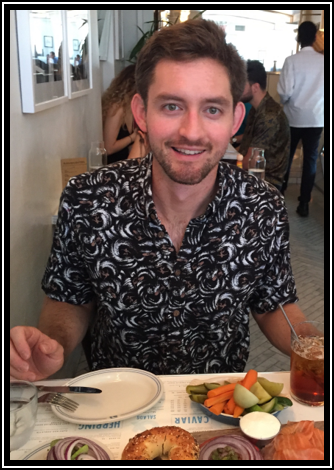 Harry Braverman Paper Winning Title: “Stuck behind kitchen doors? Assessing the work prospects of latter-generation Latino workers in a Los Angeles Restaurant”
Harry Braverman Paper Winning Title: “Stuck behind kitchen doors? Assessing the work prospects of latter-generation Latino workers in a Los Angeles Restaurant”
Author: Eli R. Wilson
Affiliation: University of California, Los Angeles
E-mail: elihapa@gmail.com
Abstract:
The disproportionate number of Latinos employed in unskilled US service industries appears to exemplify the bleak labor market prospects and inter-generational immobility facing this population. Yet as the offspring of immigrants begin to enter service jobs alongside the first generation, how might they be faring differently as a result of their particular characteristics and the social organization of the workplace? Drawing on 14 months of ethnographic research in an upscale Los Angeles restaurant, this study examines the labor prospects of 1.5- and second-generation Latinos in a shopfloor split between immigrant Latino and privileged white employee cohorts. I show that while structural disadvantages and directed social networks initially funnel many latter- generation workers into bottom-rung service jobs in the back of the house, some are able to leverage various dimensions of their inbetweenness in this setting to access new occupational mobility pathways virtually closed to the first generation.
LAW AND SOCIETY DIVISION
Alfred R. Lindesmith Paper Winning Title: “‘Our Great Hobby’: The Construction of Legal Consciousness in Online Networks for Buyers of Sex in Illinois”
 |
Author: Lara Janson
Affiliation: University of Chicago
E-mail: jansonla@uchicago.edu
Abstract:
Discussions about commercial sex often ignore sex purchasers. Most research focuses on prostituted people, limiting our understanding of the social relationships that characterize and reproduce the industry and curbing our ability to understand which policies purchasers themselves may consider effective or ineffective at deterring them, a question that elucidates how law matters to this and other marginalized populations. This study focuses on the exchange of information among men who post on online “johns’ boards” in Illinois, particularly in response to changes in Illinois prostitution legislation around 2010. My content analysis indicates that many posters pay close attention to changes in statewide legislation and local law enforcement policies regarding prostitution. I argue that when purchasers perceive policies as tangible, ongoing threats, their legal consciousness shifts, and law enforcement is no longer seen as a manageable risk. Such a finding could have wider implications for our understanding of law and social change.
POVERTY, CLASS, AND INEQUALITY DIVISION
 |
Winning Title: “Child Welfare Reporting and Poor Urban Mothers’ Disengagement”
Author: Kelley Fong
Affiliation: Harvard University
E-mail: kelleytyfong@fas.harvard.edu
Abstract:
Healthcare, social service, and other professionals, as well as friends and family, serve as vital sources of support for low-income mothers. Yet the state deputizes surveillance of parenting behavior to these same resources, relying on professionals and concerned community members to report child abuse or neglect. These reports are not uncommon, and can lead to state supervision and child removal. Drawing on in-depth interviews with 57 low-income mothers, a group highly exposed and particularly vulnerable to this intervention, this paper shows how poor mothers identify risk of state intervention outside the child welfare agency tasked with formal social control. For mothers, who recognized service providers and social networks as potential conduits to state surveillance, preventing child welfare intervention involved keeping these third parties at a distance: avoiding or selectively sharing information with service providers and seeing extensive social networks and public space as risky. These findings highlight implications of a surveillance system reliant on third-party reporters; identify an unexamined barrier to trust, engagement, and support among the poor; and position child welfare as a far-reaching institutional presence for poor families.
RACIAL AND ETHNIC MINORITIES DIVISION
 |
Winning Title: “Racial Micro-aggressions in the Labor Market and Workplace in Australia”
Author: Yao-Tai Li
Affiliation: University of California, San Diego
E-mail: yal059@ucsd.edu
Abstract:
Racial micro-aggressions appear in different forms and affect racial and ethnic groups through everyday practices. Few studies, however, have shown how these subtle, intentional or unintentional, aggressions sustain, reproduce, or strengthen racial stereotypes within a particular racial/ethnic group. This project examines job-search processes, cultural perceptions, ethnic interactions, and work experiences of ethnic Chinese migrant workers who work in Australia. By showing how ethnic Chinese migrants mutually tease each other with strong “Asian” accents, blame themselves for English that is not good enough to qualify for “better” jobs, and how they interpret white employers and colleagues’ micro-aggressions, such as rude verbal behavior (either joking or as a way to show friendliness), this project will argue that racial micro-aggressions can be internalized and reproduced within the ethnic group. They can ease mutual tensions between advantaged and disadvantaged groups but, at the same time, maintain persistent racial stereotypes in everyday life.
SEXUAL BEHAVIOR, POLITICS, AND COMMUNITIES DIVISION
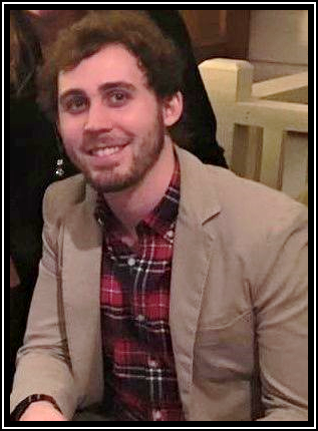 |
 |
| Mize | Manago |
Winning Title: “The Stereotype Content of Sexual Orientation”
Author: Trenton D. Mize and Bianca Manago
Affiliation: Indiana University
E-mail: tdmize@indiana.edu and bmanago@indiana.edu
Abstract:
Why do gay men, lesbian women, and bisexual individuals face negative stereotypes and prejudicial treatment? The stereotype content model provides a powerful tool to understand both how social groups become associated with disadvantaging stereotypes and what the consequences are of these stereotypes. We theorize how stereotypes of gender, sexuality, and a group’s status in society combine to influence societal views of sexual orientation groups. In two survey experiments, including a test in a diverse national sample, we collect quantitative measures of stereotype content and open-response items on the stereotypes of bisexual individuals. We predict—and find—that gay men and lesbians face disadvantaging stereotypes; bisexual men and women however, face the most severe disadvantages of any sexual orientation group—with aggregate judgments of low warmth and competence. We emphasize the importance of comparative approaches that consider both advantaged and disadvantaged groups to fully contextualize stereotypes of minority groups.
SOCIAL PROBLEMS THEORY DIVISION
 |
|
| Halpin |
Winning Title: “Science and Sociodicy: Neuroscientific Explanations of Social Problems”
Author: Michael Halpin
Affiliation: University of Wisconsin, Madison
E-mail: mahalpin@wisc.edu
Abstract:
The critique of individualistic explanations of social problems is central to sociological thought. Drawing on Weber’s concept of theodicy and Bourdieu’s notion of sociodicy, my paper continues this tradition by critically evaluating neuroscientific explanations of social problems. My argument has three elements. First, I describe neuroscientific explanations of two social problems: obesity and gender differences. I argue that such explanations are indicative of a neurodicy, or the framing of social issues as having a neurobiological etiology. Second, I review the interventions that are associated with the neurodicy of these two issues, which situate obesity as a target of neurobiological intervention, while naturalizing gender differences. Third, I argue that neurodicy obscures sociological explanations of social problems, which can legitimate the status quo and de-emphasize the need for social or institutional change. I conclude by discussing broader theoretical issues and advocating for a multi-dimensional approach towards the study of social problems.
Honorable Mention: “Reclaiming the Commons, Activating Space: A Dual Genealogy,”
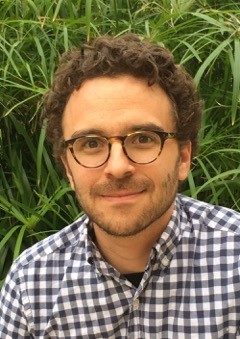 |
|
| Ela |
Author: Nate Ela
Affiliation: University of Wisconsin-Madison
E-mail: nela@wisc.edu
Abstract:
Scholars and growers have recently theorized urban agriculture as a means of “reclaiming the commons.” This conceptualization of how people claim and govern common land diverges from, and contrasts with, Elinor Ostrom’s theory of commons governance. This article traces a genealogy of alternative modes of imagining how commons might be reclaimed. From the 1600s through the 1800s, social thinkers and reformers divided over how to address the poverty and unemployment they understood as resulting from the enclosure of common lands. Some proposed to reclaim the commons by activating space—reuniting the unemployed poor with unused land. Others saw this reunion as impracticable, and instead envisioned reclaiming the commons by taxing property and transferring proceeds. The former “land fix” vision, which achieves redistribution by granting use rights, has echoes in contemporary urban agriculture. A genealogical perspective suggests how state-led “tax fix” strategies may also be a means of reclaiming the commons.
SOCIETY AND MENTAL HEALTH DIVISION
 |
Winning Title: “American Indian Suicide Ideation: A Review of Adolescent and Early Adult differences using General Strain Theory”
Author: Jerreed D. Ivanich
Affiliation: University of Nebraska Lincoln
E-mail: jivanich@huskers.unl.edu
Abstract:
The objective of this study is to compare suicidal thoughts amongst American Indian/Alaskan Native's (AI/AN) to a non-AI/AN comparison group, using data from the National Longitudinal Study of Adolescent to Adult Health, a nationally-representative, longitudinal study. This study uses General Strain Theory as the guiding framework for understanding differences between racial groups in their suicidal ideation. At Wave I, a statistical difference is present between AI/AN and comparisons, but at Wave IV the difference is no longer significant. The factors that may explain these differences addressed in this study include: alcohol abuse, exposure to suicidal behavior of friends and family, depression, and weapon access. Implications for prevention and treatment are discussed.
SOCIOLOGY AND SOCIAL WELFARE DIVISION
 |
Winning Title: “Negotiating Privacy in the Context of Poverty: Poor Mothers and the Social Safety Net”
Author: Cayce C. Hughes
Affiliation: University of Chicago
E-mail: caycehughes@uchicago.edu
Abstract:
Drawing on in-depth interviews with sixty poor mothers in a high-poverty neighborhood in Houston, TX, I ask how mothers experience the potential loss of privacy endemic to the process of seeking public assistance, and examine how privacy concerns affect when, how, and whether they engage with the social safety net. I find that in the welfare context, it is both the extent of information clients are asked, how caseworkers ask those personal questions, and the power of the state to uncover clients’ personal information whether or not they voluntarily disclose it that produce privacy problems for mothers. In contrast, in the non-profit and church settings, very little personal information is required from mothers and organizations do not have the power to get information if clients do not disclose it. Yet, mothers worry about a different dimension of privacy, as they fear being seen by other community members utilizing these resources because of the stigma attached to being “needy” enough to use what is seen as a last resort, and the judgment around those labeled “greedy” because they take charity for which others might have a greater need. Mothers face multidimensional tradeoffs navigating the social safety net as they weigh the desire to preserve privacy, dignity, and autonomy while also getting the material assistance they need to support their families. Theoretical and policy relevant implications are discussed.
SPORT, LEISURE, AND THE BODY DIVISION
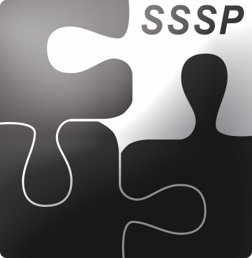 |
| Hendricks |
 |
| Billups |
Winning Title: “What the Action Is: Flow, Risk, and Gender in a Fire Community”
Author: Kathryn Hendricks
Affiliation: University of Chicago
E-mail: kahen@uchicago.edu
Abstract: No information provided
Honorable Mention: “Courting Equality? An Ethnographic Account of Disparities and Differential Treatment within a Youth Non-Profit Tennis Program”
Author: Sarah Catherine Billups
Affiliation: University of Minnesota Twin Cities
E-mail: billu013@umn.edu
Abstract:
This ethnography of a citywide youth tennis program demonstrates how youth experience extracurricular activities differently not just across programs, but within them as well. While the same mission statement, cost-structure, and organizational strategy govern all of the program's locations, the actual experience for children varies with the demographics of the participant population in each site. A site serving a Southeast Asian refugee population promotes fun, discipline, and assimilation, whereas the site serving middle-class white youth promotes skill development and cultural capital accumulation. A third site, serving a more established immigrant group fosters ethnic identity formation and competitive skill development. This project is part of the larger Kids' Involvement and Diversity Study at University of Minnesota and contributes to a better understanding of the diverse and growing landscape of youth activities, and how they exacerbate inequalities or enable social mobility.
TEACHING SOCIAL PROBLEMS DIVISION
No Award Given
YOUTH, AGING, AND THE LIFE COURSE DIVISION
 |
Winning Title: “Alzheimer’s Disease Disparities: The Impact of the Great Depression and Cumulative Inequality on Cognitive Decline”
Author: Jo Mhairi Hale
Affiliation: University of California, Davis
E-mail: johale@ucdavis.edu
Abstract:
Alzheimer’s disease is the sixth leading cause of death in the United States. Theory suggests that socioeconomic factors may interact over the life course to affect late-onset Alzheimer’s risk, but evidence is inconclusive. I use the Great Depression as a natural experiment to study whether early-life exposure to macroeconomic shock is directly associated with late-life cognitive function (Critical Period Model), combines with other disadvantages over the life course (Cumulative Inequality Model), and/or influences risky behaviors (Social Trajectory Model). Using growth curve models to analyze the Health and Retirement Study and U.S. Census Bureau historical data, I find evidence for the Critical Period Model in that early-life exposure to the Great Depression is directly associated with cognition, controlling for intervening factors. Evidence for the Cumulative Inequality Model is that disadvantage is significantly associated with cognition, affects trajectories of decline, and accumulates over the life course. I find little evidence for the Social Trajectory Model. Complicating the cognitive reserve hypothesis, mechanisms of resilience are not limited to education.
